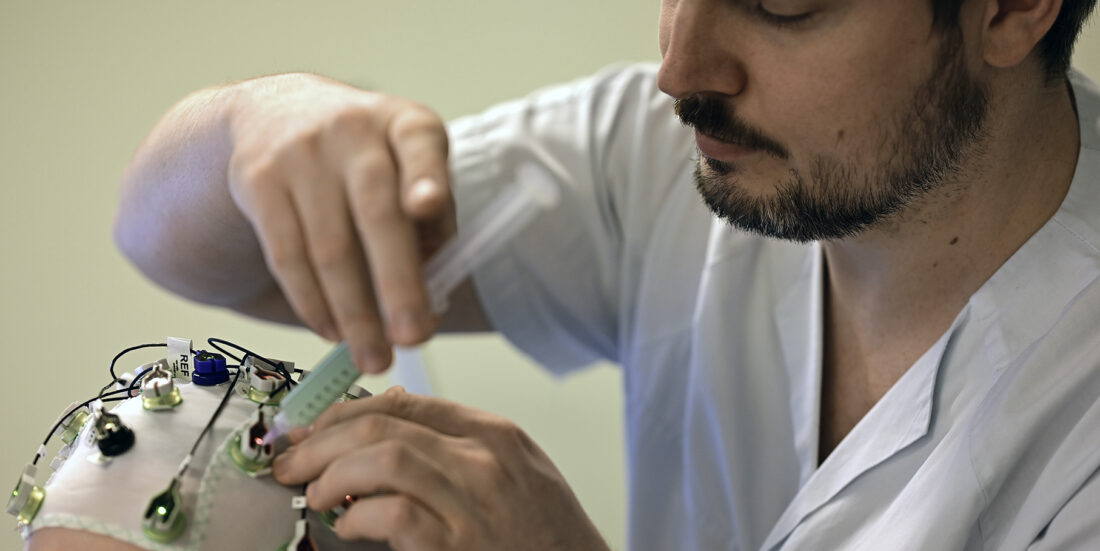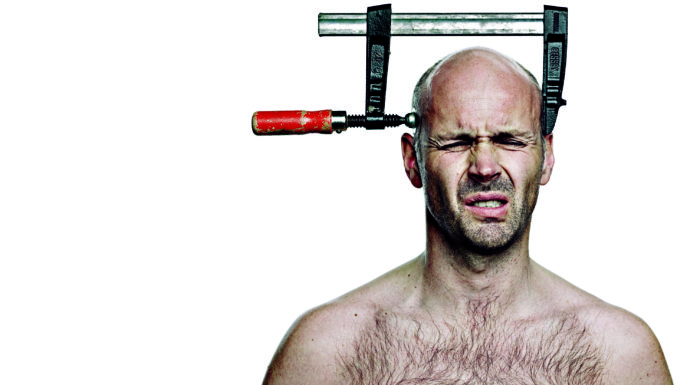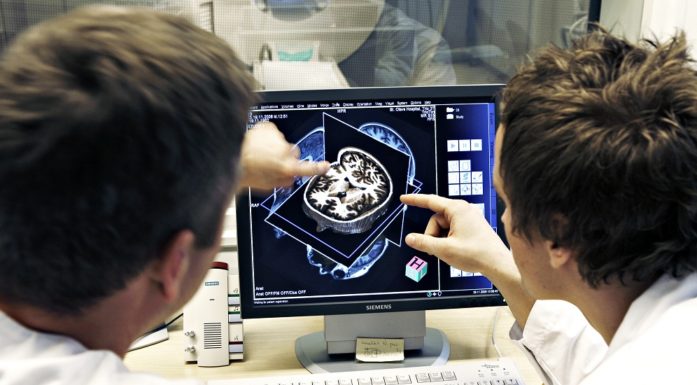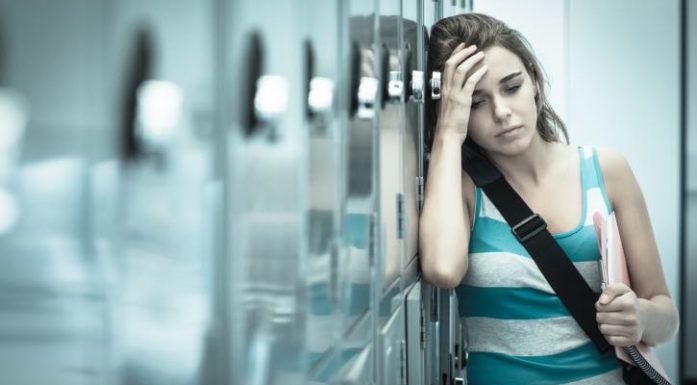Here’s why migraine symptoms are worse in patients who get little sleep
The mechanisms in the brain that should reduce pain don’t work as well in people with migraine when they haven’t gotten enough sleep.
For the first time, researchers have studied what happens in the brains of people who have migraines when they haven’t slept enough.
Migraine is characterized by pulsating headaches, photophobia, vomiting, nausea and increased sensitivity to sound. The disease affects about fifteen per cent of the Norwegian population, which similar to the incidence globally.
Migraine is the leading cause of disability in people between the ages of 16 and 50.
“These are important years in one’s life when it comes to school, higher education and career. Migraines are a great burden for both the individual and society. Many people who struggle with migraine are away from work a lot. This is a very common disorder that we need to understand better so that better treatment can be provided,” says Petter Moe Omland, a medical doctor and postdoctoral fellow at NTNU.
Migraine still a mystery
Now he and a research team have discovered a new piece of the puzzle about the migraine brain.
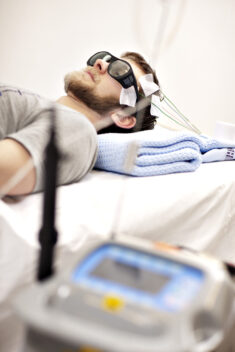
“After a long period of very little sleep, I started waking up with severe migraine attacks in the middle of the night. It was very distressing. My brain clearly couldn’t stand sleeping so little for a long time,” said doctor and postdoctoral fellow Petter Moe Omland. Here he is shown as a volunteer test subject. Photo: Geir Mogen/NTNU
“It is well known that sleep can relieve migraine headaches, migraine attacks can start during or after sleep, and many people with migraine say that disturbed sleep triggers attacks,” says Omland.
Migraine patients also have reduced sleep quality, more daytime fatigue and more sleep disturbances compared to people without headaches. In addition, insomnia is associated with an increased risk of developing migraines.
Many people who have migraines feel that touch as painful during attacks and have heightened sensitivity to light, smell and touch between attacks.
“Now we know more about the link between pain and sleep,” Omland said.
The study was highlighted in Cephalagia, a medical journal for having contributed valuable insights to the understanding of headache and treatment.
- You might also like: Half of the world’s population struggles with headaches
Sacrificed sleep
The test subjects have sacrificed a lot to help the researchers find new answers. During the course of two studies, 140 people sacrificed sleep and had their brain’s nervous system studied and measured.
The examinations are quick and safe measurements of what is happening in the brain. In the latest publication from these studies, the subjects were subjected to pain in order for the researchers at NTNU to find out more about the connection between sleep and migraine.
The participants in the study were divided into two groups, one group who had migraine, and a second group of healthy control subjects. The study was blinded, which means that the researchers did not know who belonged to which groups.
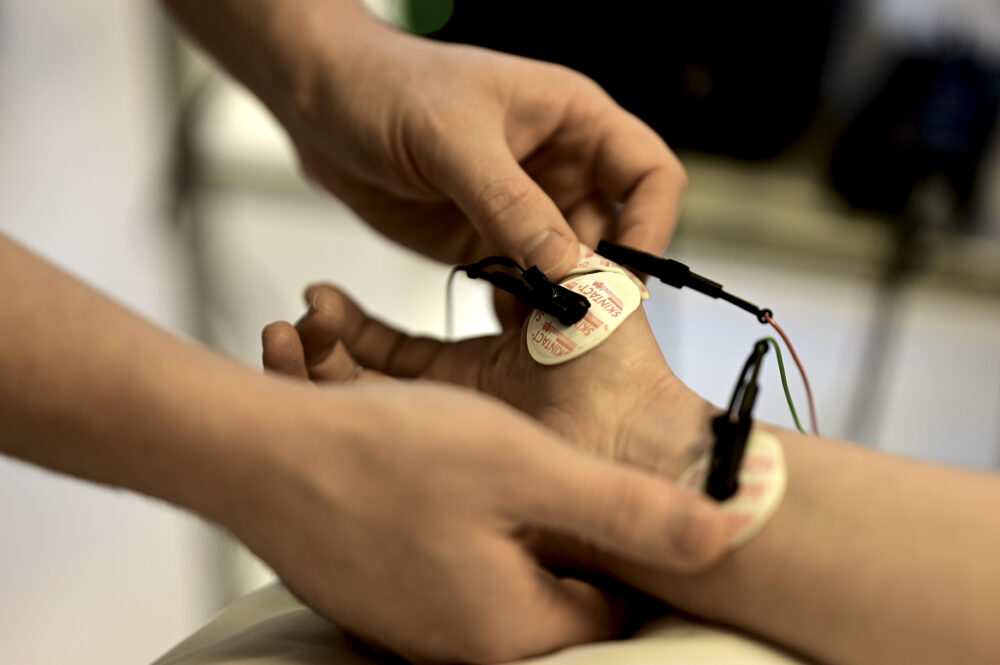
Many people volunteers to help in the search for more answers about migraine. The participants slept little and were subjected to pain through, among other things, electronic simulation on different parts of the hand. Photo: NTNU
Participants were examined twice on different days. All were examined after two nights of normal sleep, and after two nights of reduced sleep. All participants also had to keep a sleep diary, as well as use an electronic meter that logged sleep.
During the actual examination, the participants wore a cap with EEG electrodes. The EEG electrodes were used to measure activity in the brain during two types of pain stimulation, one with a laser and one with electrical stimulation.
In this way, the researchers were able to measure activity in the brain and investigate how the brain handled pain signals after little sleep.
Got migraines himself
“None of this was dangerous, but it was clearly uncomfortable. People with migraine are incredibly good at volunteering for trials because they want there to be more knowledge about the disease,” says Omland.
The study shows that the cerebral cortex in people with migraine responds differently to pain than in others when the migraine sufferers haven’t had enough sleep. In another recent study, the researchers showed that lack of sleep affects systems in the brain that slow down the activation of nerve cells in those who have migraines.
It may be these systems that cause the brain to process pain and other sensory impressions differently in those with migraine than those who don’t get these headaches.
“The mechanisms that are supposed to reduce pain do not work quite as in people who do not have migraines. The pain is not dampened as much as in healthy people,” says Omland.
Omland himself did not have migraines when he started studying them, but developed them for a period.
“I had small children, worked as a doctor and was a researcher as well. After a long period when I slept very little, I started waking up with severe migraine attacks in the middle of the night. It was very troublesome. My brain obviously couldn’t stand sleeping so little for a long time. The fact that I got these headaches myself became an extra motivation to understand more,” Omland said.
References:
Omland PM, Hansen JO, Neverdahl JP, et al. Migraine and insufficient sleep: The effect of sleep restriction on nociceptive evoked potentials in migraine. Cephalalgia. 2025; 45(3). doi:10.1177/03331024251329400
Martin Syvertsen Mykland, Migraine and Sleep, The effects of insufficient sleep on brain function in migraine, NTNU Open, 2023.
